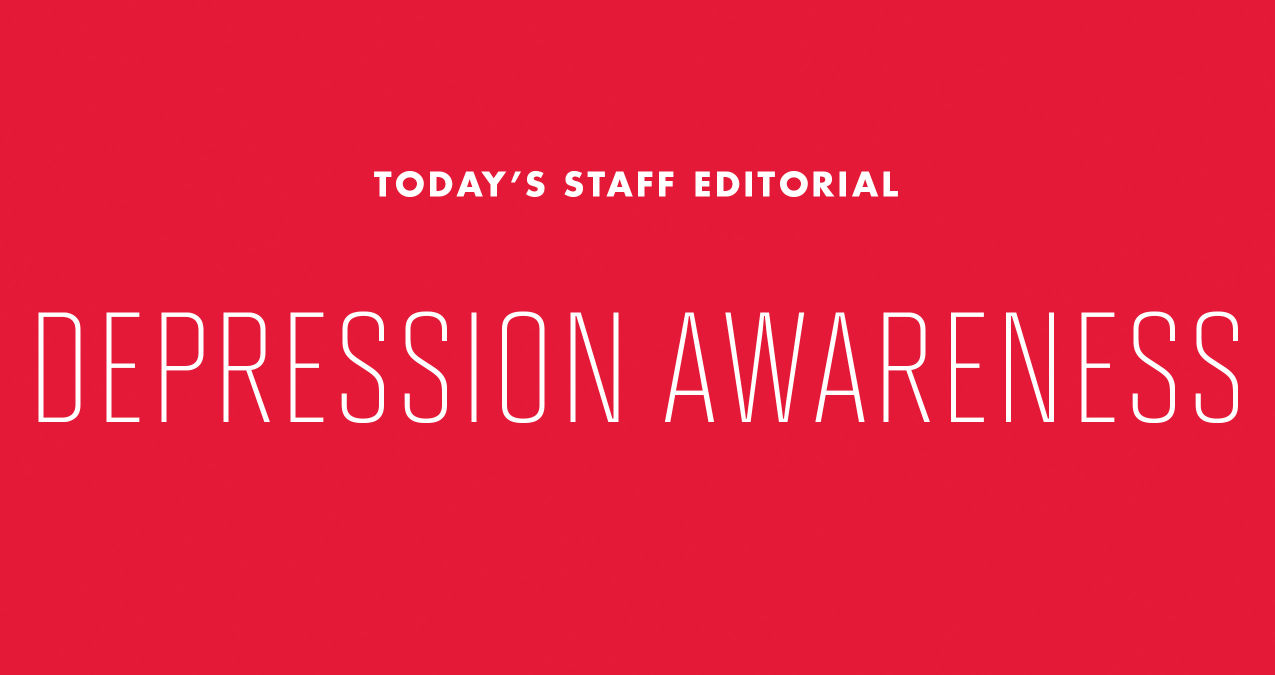
Depression Awareness
This week marks Mental Illness Awareness Week, and all college students and mental health professionals need to focus on raising awareness for mental health diseases, especially depression, that pervade university campuses.
A study by the American College Health Association states that 60.5 percent of college students have felt “very sad” during the past year. Despite the lack of colorful description, this statistic should raise alarm across all university health centers. A majority of college students across the country have felt incredibly sad at one point in time. Unfortunately, it gets bleaker. The same study reported that 30.3 percent of college students shared that they felt sad enough that it was hard for them to function on a daily basis.
College is a stressful experience for all students, but those affected by depression have that stress exacerbated. College students who suffer from depression are more likely to smoke cigarettes, experience problems associated with alcohol abuse and risk jeopardizing their academic performance, according to the National Institute of Mental Health.
These statistics are alarming, and yet Nicole Silverberg, University Health Center care manager, told The Diamondback that she is not surprised by them. According to Silverberg, there were 9,731 university students who experienced depression last year, and 7,770 of them went without the minimum mental health care they required.
In response to these overwhelming statistics and with the timeliness of Mental Illness Awareness Week, the health center offered free depression screenings yesterday. Obviously, this was an incredibly thoughtful and educated initiative by the health center. But more can be done to ensure that students are getting diagnosed and treated for depression.
A 2012 report by the National Alliance on Mental Illness revealed that 40 percent of students with diagnosable mental conditions did not seek any help from a mental health professional. Fifty-seven percent of them did not request any special accommodations from their school. Students are not seeking help, and that needs to change. Those students, who do seek help and guidance, don’t just do it on Oct. 9. Awareness of depression and other mental illness needs to be heightened consistently — not just in October.
Yes, there are several services such as the Help Center hotline or surveys students can access through the health center’s website that can attempt to assess a student’s basic mental health. But talking about your mental health face-to-face with someone can do a lot more than just clicking on symptoms in a survey. This is why the health center should consider doing monthly or even weekly free depression screenings to make sure students are aware of their susceptibility to depression.
Those entrusted to keep students both physically and mentally healthy should raise awareness every day about the mental health illnesses to which college students are susceptible. While the health center’s free depression screenings yesterday did just that, more could be done on a more frequent basis to ensure the safety of students’ mental health.



